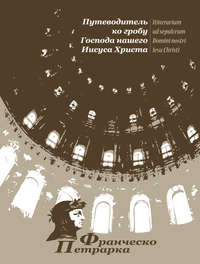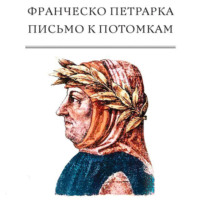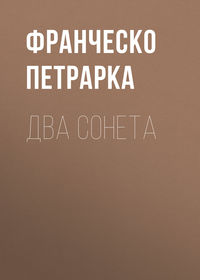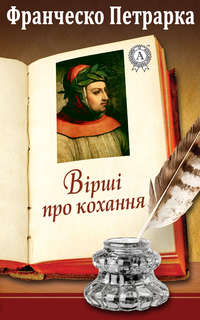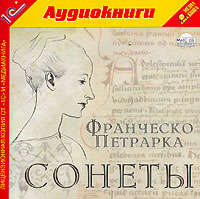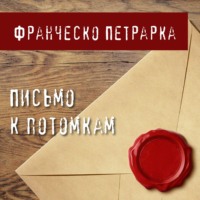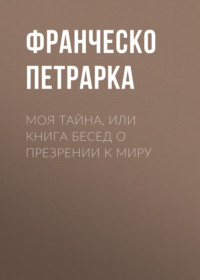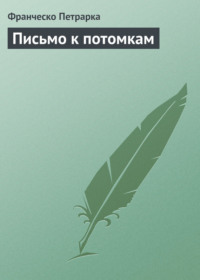 полная версия
полная версияThe Sonnets, Triumphs, and Other Poems of Petrarch
As Petrarch grew old, we do not find him improve in consistency. In his letter, dated the 21st of October, 1353, it is evident that he had a return of his hankering after Vaucluse. He accordingly wrote to his friends, requesting that they would procure him an establishment in the Comtat. Socrates, upon this, immediately communicated with the Bishop of Cavaillon, who did all that he could to obtain for the poet the object of his wish. It appears that the Bishop endeavoured to get for him a good benefice in his own diocese. The thing was never accomplished. Without doubt, the enemies, whom he had excited by writing freely about the Church, and who were very numerous at Avignon, frustrated his wishes.
After some time Petrarch received a letter from the Emperor Charles IV. in answer to one which the poet had expedited to him about three years before. Our poet, of course, did not fail to acknowledge his Imperial Majesty's late-coming letter. He commences his reply with a piece of pleasantry: "I see very well," he says, "that it is as difficult for your Imperial Majesty's despatches and couriers to cross the Alps, as it is for your person and legions." He wonders that the Emperor had not followed his advice, and hastened into Italy, to take possession of the empire. "What consoles me," he adds, "is, that if you do not adopt my sentiments, you at least approve of my zeal; and that is the greatest recompense I could receive." He argues the question with the Emperor with great force and eloquence; and, to be sure, there never was a fairer opportunity for Charles IV. to enter Italy. The reasons which his Imperial Majesty alleges, for waiting a little time to watch the course of events, display a timid and wavering mind.
A curious part of his letter is that in which he mentions Rienzo. "Lately," he says, "we have seen at Rome, suddenly elevated to supreme power, a man who was neither king, nor consul, nor patrician, and who was hardly known as a Roman citizen. Although he was not distinguished by his ancestry, yet he dared to declare himself the restorer of public liberty. What title more brilliant for an obscure man! Tuscany immediately submitted to him. All Italy followed her example; and Europe and the whole world were in one movement. We have seen the event; it is not a doubtful tale of history. Already, under the reign of the Tribune, justice, peace, good faith, and security, were restored, and we saw vestiges of the golden age appearing once more. In the moment of his most brilliant success, he chose to submit to others. I blame nobody. I wish neither to acquit nor to condemn; but I know what I ought to think. That man had only the title of Tribune. Now, if the name of Tribune could produce such an effect, what might not the title of Cæsar produce!"
Charles did not enter Italy until a year after the date of our poet's epistle; and it is likely that the increasing power of John Visconti made a far deeper impression on his irresolute mind than all the rhetoric of Petrarch. Undoubtedly, the petty lords of Italy were fearful of the vipers of Milan. It was thus that they denominated the Visconti family, in allusion to their coat of arms, which represented an immense serpent swallowing a child, though the device was not their own, but borrowed from a standard which they had taken from the Saracens. The submission of Genoa alarmed the whole of Italy. The Venetians took measures to form a league against the Visconti; and the Princes of Padua, Modena, Mantua, and Verona joined it, and the confederated lords sent a deputation to the Emperor, to beg that he would support them; and they proposed that he should enter Italy at their expense. The opportunity was too good to be lost; and the Emperor promised to do all that they wished. This league gave great trouble to John Visconti. In order to appease the threatening storm, he immediately proposed to the Emperor that he should come to Milan and receive the iron crown; while he himself, by an embassy from Milan, would endeavour to restore peace between the Venetians and the Genoese.
Petrarch appeared to John Visconti the person most likely to succeed in this negotiation, by his eloquence, and by his intimacy with Andrea Dandolo, who governed the republic of Venice. The poet now wished for repose, and journeys began to fatigue him; but the Visconti knew so well how to flatter and manage him, that he could not resist the proposal.
At the commencement of the year 1354, before he departed for Venice, Petrarch received a present, which gave him no small delight. It was a Greek Homer, sent to him by Nichola Sigeros, Prætor of Romagna. Petrarch wrote a long letter of thanks to Sigeros, in which there is a remarkable confession of the small progress which he had made in the Greek language, though at the same time he begs his friend Sigeros to send him copies of Hesiod and Euripides.
A few days afterwards he set out to Venice. He was the chief of the embassy. He went with confidence, flattering himself that he should find the Venetians more tractable and disposed to peace, both from their fear of John Visconti, and from some checks which their fleet had experienced, since their victory off Sardinia. But he was unpleasantly astonished to find the Venetians more exasperated than humbled by their recent losses, and by the union of the Lord of Milan with the Genoese. All his eloquence could not bring them to accept the proposals he had to offer. Petrarch completely failed in his negotiation, and, after passing a month at Venice, he returned to Milan full of chagrin.
Two circumstances seem to have contributed to render the Venetians intractable. The princes with whom they were leagued had taken into their pay the mercenary troops of Count Lando, which composed a very formidable force; and further, the Emperor promised to appear very soon in Italy at the head of an army.
Some months afterwards, Petrarch wrote to the Doge of Venice, saying, that he saw with grief that the hearts of the Venetians were shut against wise counsels, and he then praises John Visconti as a lover of peace and humanity.
After a considerable interval, Andrea Dandolo answered our poet's letter, and was very sarcastic upon him for his eulogy on John Visconti. At this moment, Visconti was arming the Genoese fleet, the command of which he gave to Paganino Doria, the admiral who had beaten the Venetians in the Propontis. Doria set sail with thirty-three vessels, entered the Adriatic, sacked and pillaged some towns, and did much damage on the Venetian coast. The news of this descent spread consternation in Venice. It was believed that the Genoese fleet were in the roads; and the Doge took all possible precautions to secure the safety of the State.
But Dandolo's health gave way at this crisis, vexed as he was to see the maiden city so humbled in her pride. His constitution rapidly declined, and he died the 8th of September, 1354. He was extremely popular among the Venetians. Petrarch, in a letter written shortly after his death, says of him: "He was a virtuous man, upright, full of love and zeal for his republic; learned, eloquent, wise, and affable. He had only one fault, to wit, that he loved war too much. From this error he judged of a cause by its event. The luckiest cause always appeared to him the most just, which made him often repeat what Scipio Africanus said, and what Lucan makes Cæsar repeat: 'Hæc acies victum factura nocentem.'"
If Dandolo had lived a little longer, and continued his ethical theory of judging a cause by its success, he would have had a hint, from the disasters of Venice, that his own cause was not the most righteous. The Genoese, having surprised the Venetians off the island of Sapienza, obtained one of the completest victories on record. All the Venetian vessels, with the exception of one that[Pg xcviii] escaped, were taken, together with their admiral. It is believed that, if the victors had gone immediately to Venice, they might have taken the city, which was defenceless, and in a state of consternation; but the Genoese preferred returning home to announce their triumph, and to partake in the public joy. About the time of the Doge's death, another important public event took place in the death of John Visconti. He had a carbuncle upon his forehead, just above the eyebrows, which he imprudently caused to be cut; and, on the very day of the operation, October 4th, 1354, he expired so suddenly as not to have time to receive the sacrament.
John Visconti had three nephews, Matteo, Galeazzo, and Barnabo. They were his heirs, and took possession of his dominions in common, a few days after his death, without any dispute among themselves. The day for their inauguration was fixed, such was the superstition of the times, by an astrologer; and on that day Petrarch was commissioned to make to the assembled people an address suited to the ceremony. He was still in the midst of his harangue, when the astrologer declared with a loud voice that the moment for the ceremony was come, and that it would be dangerous to let it pass. Petrarch, heartily as he despised the false science, immediately stopped his discourse. The astrologer, somewhat disconcerted, replied that there was still a little time, and that the orator might continue to speak. Petrarch answered that he had nothing more to say. Whilst some laughed, and others were indignant at the interruption, the astrologer exclaimed "that the happy moment was come;" on which an old officer carried three white stakes, like the palisades of a town, and gave one to each of the brothers; and the ceremony was thus concluded.
The countries which the three brothers shared amongst them comprehended not only what was commonly called the Duchy, before the King of Sardinia acquired a great part of it, but the territories of Parma, Piacenza, Bologna, Lodi, Bobbio, Pontremoli, and many other places.
There was an entire dissimilarity among the brothers. Matteo hated business, and was addicted to the grossest debaucheries. Barnabo was a monster of tyranny and cruelty. Petrarch, nevertheless, condescended to be godfather to one of Barnabo's sons, and presented the child with a gilt cup. He also composed a Latin poem, on the occasion of his godson being christened by the name of Marco, in which he passes in review all the great men who had borne that name.
Galeazzo was very different from his brothers. He had much kindliness of disposition. One of his greatest pleasures was his intercourse with men of letters. He almost worshipped Petrarch, and it was his influence that induced the poet to settle at Milan. Unlike as they were in dispositions, the brothers, nevertheless, felt how important it was that they should be united, in order to protect themselves against the league which threatened them; and, at first, they lived in the greatest harmony. Barnabo, the most warlike, was charged with whatever concerned the military. Business of every other kind devolved on Galeazzo. Matteo, as the eldest, presided over all; but, conscious of his incapacity, he took little share in the deliberations of his brothers. Nothing important was done without consulting Petrarch; and this flattering confidence rendered Milan as agreeable to him as any residence could be, consistently with his love of change.
The deaths of the Doge of Venice and of the Lord of Milan were soon followed by another, which, if it had happened some years earlier, would have strongly affected Petrarch. This was the tragic end of Rienzo. Our poet's opinion of this extraordinary man had been changed by his later conduct, and he now took but a comparatively feeble interest in him. Under the pontificate of Clement VI., the ex-Tribune, after his fall, had been consigned to a prison at Avignon. Innocent, the succeeding Pope, thought differently of him from his predecessor, and sent the Cardinal Albornoz into Italy, with an order to establish him at Rome, and to confide the government of the city to him under the title of senator. The Cardinal obeyed the injunction; but after a brief and inglorious struggle with the faction of the Colonnas, Rienzo perished in a popular sedition on the 8th of October, 1354.
War was now raging between the States of the Venetian League and Milan, united with Genoa, when a new actor was brought upon the scene. The Emperor, who had been solicited by one half of Italy to enter the kingdom, but who hesitated from dread of the Lord of Milan, was evidently induced by the intelligence of John Visconti's death to accept this invitation. In October, 1354, his Imperial Majesty entered Italy, with no show of martial preparation, being attended by only three hundred horsemen. On the 10th of November he arrived at Mantua, where he was received as sovereign. There he stopped for some time, before he pursued his route to Rome.
The moment Petrarch heard of his arrival, he wrote to his Imperial Majesty in transports of joy. "You are no longer," he said, "king of Bohemia. I behold in you the king of the world, the Roman emperor, the true Cæsar." The Emperor received this letter at Mantua, and in a few days sent Sacromore de Pomieres, one of his squires, to invite Petrarch to come and meet him, expressing the utmost eagerness to see him. Petrarch could not resist so flattering an invitation; he was not to be deterred even by the unprecedented severity of the frost, and departed from Milan on the 9th of December; but, with all the speed that he could make, was not able to reach Mantua till the 12th.
The Emperor thanked him for having come to him in such dreadful weather, the like of which he had scarcely ever felt, even in Germany. "The Emperor," says Petrarch, "received me in a manner that partook neither of imperial haughtiness nor of German etiquette. We passed sometimes whole days together, from morning to night, in conversation, as if his Majesty had had nothing else to do. He spoke to me about my works, and expressed a great desire to see them, particularly my 'Treatise on Illustrious Men.' I told him that I had not yet put my last hand to it, and that, before I could do so, I required to have leisure and repose. He gave me to understand that he should be very glad to see it appear under his own patronage, that is to say, dedicated to himself. I said to him, with that freedom of speech which Nature has given me, and which years have fortified, 'Great prince, for this purpose, nothing more is necessary than, virtue on your part, and leisure on mine.' He asked me to explain myself. I said, 'I must have time for a work of this nature, in which I propose to include great things in a small space. On your part, labour to deserve that your name should appear at the head of my book. For this end, it is not enough that you wear a crown; your virtues and great actions must place you among the great men whose portraits I have delineated. Live in such a manner, that, after reading the lives of your illustrious predecessors, you may feel assured that your own life shall deserve to be read by posterity.'
"The Emperor showed by a smile that my liberty had not displeased him, I seized this opportunity of presenting him with some imperial medals, in gold and in silver, and gave him a short sketch of the lives of those worthies whose images they bore. He seemed to listen to me with pleasure, and, graciously accepting the medals, declared that he never had received a more agreeable present.
"I should never end if I were to relate to you all the conversations which I held with this prince. He desired me one day to relate the history of my life to him. I declined to do so at first; but he would take no refusal, and I obeyed him. He heard me with attention, and, if I omitted any circumstances from forgetfulness or the fear of being wearisome, he brought them back to my memory. He then asked me what were my projects for the future, and my plans for the rest of my life. 'My intentions are good,' I replied to him, 'but a bad habit, which I cannot conquer, masters my better will, and I resemble a sea beaten by two opposite winds,' 'I can understand that,' he said; 'but I wish to know what is the kind of life that would most decidedly please you?' 'A secluded life,' I replied to him, without hesitation. 'If I could, I should go and seek for such a life at its fountain-head; that is, among the woods and mountains, as I have already done. If I could not go so far to find it, I should seek to enjoy it in the midst of cities.'
"The Emperor differed from me totally as to the benefits of a solitary life. I told him that I had composed a treatise on the subject. 'I know that,' said the Emperor; 'and if I ever find your book, I shall throw it into the fire.' 'And,' I replied, 'I shall take care that it never falls into your hands.' On this subject we had long and frequent disputes, always seasoned with pleasantry. I must confess that the Emperor combated my system on a solitary life with surprising energy."
Petrarch remained eight days with the King of Bohemia, at Mantua, where he was witness to all his negotiations with the Lords of the league of Lombardy, who came to confer with his Imperial Majesty, in that city, or sent thither their ambassadors. The Emperor, above all things, wished to ascertain the strength of this confederation; how much each principality would contribute, and how much might be the sum total of the whole contribution. The result of this inquiry was, that the forces of the united confederates were not sufficient to make head against the Visconti, who had thirty thousand well-disciplined men. The Emperor, therefore, decided that it was absolutely necessary to conclude a peace. This prince, pacific and without ambition, had, indeed, come into Italy with this intention; and was only anxious to obtain two crowns without drawing a sword. He saw, therefore, with satisfaction that there was no power in Italy to protract hostilities by strengthening the coalition.
He found difficulties, however, in the settlement of a general peace. The Viscontis felt their superiority; and the Genoese, proud of a victory which they had obtained over the Venetians, insisted on hard terms. The Emperor, more intent upon his personal interests than the good of Italy, merely negotiated a truce between the belligerents. He prevailed upon the confederates to disband the company of Count Lando, which cost much and effected little. It cannot be doubted that Petrarch had considerable influence in producing this dismissal, as he always held those troops of mercenaries in abhorrence. The truce being signed, his Imperial Majesty had no further occupation than to negotiate a particular agreement with the Viscontis, who had sent the chief men of Milan, with presents, to conclude a treaty with him. No one appeared more fit than Petrarch to manage this negotiation, and it was universally expected that it should be entrusted to him; but particular reasons, which Petrarch has not thought proper to record, opposed the desires of the Lords of Milan and the public wishes.
The negotiation, nevertheless, was in itself a very easy one. The Emperor, on the one hand, had no wish to make war for the sake of being crowned at Monza. On the other hand, the Viscontis were afraid of seeing the league of their enemies fortified by imperial power. They took advantage of the desire which they observed in Charles to receive this crown without a struggle. They promised not to oppose his coronation, and even to give 50,000 florins for the expense of the ceremony; but they required that he should not enter the city of Milan, and that the troops in his suite should be disarmed.
To these humiliating terms Charles subscribed. The affair was completed during the few days that Petrarch spent at Mantua. The Emperor strongly wished that he should be present at the signature of the treaty; and, in fact, though he was not one of the envoys from Milan, the success of the negotiation was generally attributed to him. A rumour to this effect reached even Avignon, where Lælius then was. He wrote to Petrarch to compliment him on the subject. The poet, in his answer, declines an honour that was not due to him.
After the signature of the treaty, Petrarch departed for Milan, where he arrived on Christmas eve, 1354. He there found four letters from Zanobi di Strata, from whom he had not had news for two years. Curious persons had intercepted their letters to each other. Petrarch often complains of this nuisance, which was common at the time.
The Emperor set out from Mantua after the festivities of Christmas. On arriving at the gates of Milan, he was invited to enter by the Viscontis; but Charles declined their invitation, saying, that he would keep the promise which he had pledged. The Viscontis told him politely that they asked his entrance as a favour, and that the precaution respecting his troops by no means extended to his personal presence, which they should always consider an honour. The Emperor entered Milan on the 4th of January, 1355. He was received with the sound of drums, trumpets, and other instruments, that made such a din as to resemble thunder. "His entry," says Villani, "had the air of a tempest rather than of a festivity." Meanwhile the gates of Milan were shut and strictly guarded. Shortly after his arrival, the three brothers came to tender their homage, declaring that they held of the Holy Empire all that they possessed, and that they would never employ their possessions but for his service.
Next day the three brothers, wishing to give the Emperor a high idea of their power and forces, held a grand review of their troops, horse and foot; to which, in order to swell the number, they added companies of the burgesses, well mounted, and magnificently dressed; and they detained his poor Majesty at a window, by way of amusing him, all the time they were making this display of their power. Whilst the troops were defiling, they bade him look upon the six thousand cavalry and ten thousand infantry, which they kept in their pay for his service, adding that their fortresses and castles were well furnished and garrisoned. This spectacle was anything but amusing to the Emperor; but he put a good countenance on the matter, and appeared cheerful and serene. Petrarch scarcely ever quitted his side; and the Prince conversed with him whenever he could snatch time from business, and from the rigid ceremonials that were imposed on him.
On the 6th of January, the festival of Epiphany, Charles received at Milan the iron crown, in the church of St. Ambrosio, from the hands of Robert Visconti, Archbishop of Milan. They gave the Emperor fifty thousand florins in gold, two hundred beautiful horses, covered with cloth bordered with ermine, and six hundred horsemen to escort him to Rome.
The Emperor, who regarded Milan only as a fine large prison, got out of it as soon as he could. Petrarch accompanied him as far as five miles beyond Pìacenza, but refused to comply with the Emperor's solicitations to continue with him as far as Rome.
The Emperor departed from Sienna the 28th of March, with the Empress and all his suite. On the 2nd of April he arrived at Rome. During the next two days he visited the churches in pilgrim's attire. On Sunday, which was Easter day, he was crowned, along with his Empress; and, on this occasion, he confirmed all the privileges of the Roman Church, and all the promises that he had made to the Popes Clement VI. and Innocent VI. One of those promises was, that he should not enter Rome except upon the day of his coronation, and that he should not sleep in the city. He kept his word most scrupulously. After leaving the church of St. Peter, he went with a grand retinue to St. John's di Latrana, where he dined, and, in the evening, under pretext of a hunting-party, he went and slept at St. Lorenzo, beyond the walls.
The Emperor arrived at Sienna on the 29th of April. He had there many conferences with the Cardinal Albornoz, to whom he promised troops for the purpose of reducing the tyrants with whom the Legate was at war. His Majesty then went to Pisa, where, on the 21st of May, 1355, a sedition broke out against him, which nearly cost him his life. He left Tuscany without delay, with his Empress and his whole suite, to return to Germany, where he arrived early in June. Many were the affronts he met with on his route, and he recrossed the Alps, as Villani says, "with his dignity humbled, though with his purse well filled."
Lælius, who had accompanied the Emperor as far as Cremona, quitted him at that place, and went to Milan, where he delivered to Petrarch the Prince's valedictory compliments. Petrarch's indignation, at his dastardly flight vented itself in a letter to his Imperial Majesty himself, so full of unmeasured rebuke, that it is believed it was never sent.


